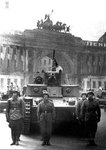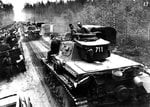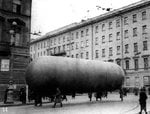Ramirezzz
Senior Airman
Exactly 67 years ago at 9 September Germans surrounded the city of Leningrad cutting off all supply lines. The siege lasted 872 days, some 1,2 million of Leningrad citizens died from hunger, cold and German bombardments.
ЗапиÑки наблюдаÑ'ÐµÐ»Ñ - Ð'локада глазами архиÑ'екÑ'оров.
ЗапиÑки наблюдаÑ'ÐµÐ»Ñ - Ð'локада глазами архиÑ'екÑ'оров.






